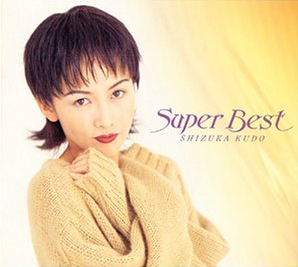
Super Best is the sixth compilation album by Japanese singer Shizuka Kudo. It was released on November 19, 1993, through Pony Canyon. It is Kudo's first single collection, featuring all A-sides produced by Tsugutoshi Gotō and released by Kudo since her solo debut, from "Kindan no Telepathy" up to the most recent at the time, "Anata Shika Inai Desho", spread out on two discs. The compilation also includes one new song, entitled "Honō no Naka e", which was written specifically for the album and which marks the last collaboration with Gotō until 2015, when he composed "Tan Jun Ai vs Hontō no Ai" for the compilation My Treasure Best: Miyuki Nakajima × Tsugutoshi Gotō Collection. Super Best was re-released in APO-CD format on December 1, 1993.

Rosette is the fifth studio album by Japanese singer Shizuka Kudo. It was released on April 4, 1990, through Pony Canyon. Initially titled Mysterious II, Rosette is Kudo's first album to be entirely arranged by Tsugutoshi Gotō and his band members, credited under the name Draw4. The limited first pressing of the album came in a special box packaging. Rosette was re-released in APO-CD format on December 1, 1993.

"Kōsa ni Fukarete" is a song recorded by Japanese singer Shizuka Kudo, released as a single through Pony Canyon on September 6, 1989. It is Kudo's last single to be released in 7-inch vinyl format. The song, which has never appeared on an original album, was included in the compilation album, Harvest. It was featured on commercials for Taiyo Yuden That's cassette tapes.

"Arashi no Sugao" is a song recorded by Japanese singer Shizuka Kudo, released as a single by Pony Canyon on May 3, 1989. Although the song is one of Kudo's most recognizable hits, as well as widely considered to be her breakout hit, and despite the fact that it was included on the compilation album Harvest, released later that same year, it was never featured on any of Kudo's studio albums. At the fourth Japan Gold Disc Awards, "Arashi no Sugao" was one of the five recipients of the award for Best Single of the Year. In 2015, DAM asked their users to select their favorite Shizuka Kudo songs to sing karaoke to and compiled a top ten list; "Arashi no Sugao" was ranked number seven.

"Kirara" is a song recorded by Japanese singer Shizuka Kudo. It was released as a single by Pony Canyon on July 17, 1998. Both "Kirara" and its coupling song, "In the Sky", were prominently featured on the CX television series, Kamisama, Mō Sukoshi Dake. Kudo performed the song on the 49th Kōhaku Uta Gassen, accompanied by Taro Hakase on the violin, marking her eighth and last appearance on the show. "Kirara" made its first album appearance on the compilation album, Best of Ballade: Current, for which Kudo also recorded an English version of "In the Sky".

Shizuka Kudo 20th Anniversary the Best is the eleventh compilation album by Japanese singer Shizuka Kudo. It was released in celebration of Kudo's 20th anniversary since her solo debut on August 29, 2007, through Pony Canyon. The compilation includes a selection of Kudo's singles released up until "Amayo no Tsuki ni". The limited edition comes with a DVD featuring the music videos for "Lotus ", "Kokoro no Chikara", "Clāvis (Kagi)" and "Amayo no Tsuki ni", as well as a digest of Kudo's live performances. Shizuka Kudo 20th Anniversary the Best was the first of three releases to celebrate Kudo's 20th, it was followed by the video album box set Shizuka Kudo The Live DVD Complete Box in September 2007, and the B-side compilation, "20th Anniversary B-side collection" in 2008.

Best of Ballade: Current is the eighth compilation album by Japanese singer Shizuka Kudo. It was released on November 18, 1998, through Pony Canyon. The compilation is Kudo's second ballad collection, following Best of Ballade: Empathy. The album features a selection of previously released ballads, handpicked by Kudo, as well as new recordings in English of three songs: "In the Sky", "Daite Kuretara Ii no ni" and "Ice Rain".

Best of Ballade: Empathy is the fifth compilation album by Japanese singer Shizuka Kudo. It was released on November 20, 1992, through Pony Canyon. It is Kudo's first ballad collection, followed by Best of Ballade: Current in 1998. Half of the album is made up of ballads from previously released studio albums while the other half features new songs recorded for the album as well as unreleased ballads co-written by Kudo, under the pseudonym Aeri.

Purple is the tenth studio album by Japanese singer Shizuka Kudo. It was released on August 2, 1995, through Pony Canyon. The album is named after Kudo's favorite color, purple, or more specifically wisteria. The record features the song "Olivia", which Kudo wrote about her deceased brother.

She: Best of Best is the seventh compilation album by Japanese singer Shizuka Kudo. It was released on December 16, 1996, through Pony Canyon. The first disc includes songs from Kudo's Tsugutoshi Gotō-produced era albums, while the second disc features songs from Kudo's self-produced records. Disc 2 contains a new song written specifically for the album, entitled "Hot Winter".
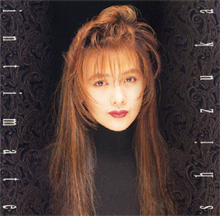
Intimate is the fourth compilation album by Japanese singer Shizuka Kudo. It was released on December 11, 1991, through Pony Canyon. The album features all singles released from "Koi Hitoyo" (1988) through "Metamorphose" (1991). The opening track, "Dare mo Shiranai Blue Angel" is a re-worked solo recording of an Ushirogami Hikaretai song by the same name released as a B-side to the single "Hora ne, Haru ga Kita" in 1988. The closing track is a new song entitled "Rashikunai", written specifically for the album by Kudo herself, under the pseudonym Aeri.

Rise Me is the eighth studio album by Japanese singer Shizuka Kudo. It was released on April 1, 1993, through Pony Canyon. Rise Me is Kudo's last album to be produced by Tsugutoshi Gotō. It yielded Kudo's best-selling single, "Dōkoku".
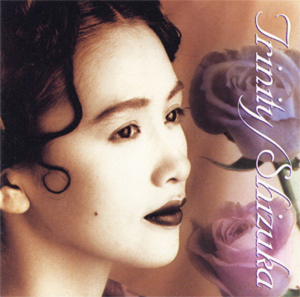
Trinity is the seventh studio album by Japanese singer Shizuka Kudo. It was released on March 18, 1992, through Pony Canyon. Trinity is Kudo's last album to be produced by Tsugutoshi Gotō. It yielded Kudo the single, "Mechakucha ni Naite Shimaitai", which became one of Kudo's signature ballads. The album also includes one of Kudo's longest recorded songs, the album closer "Suterareta Neko Janai Kara", which runs for over seven minutes.

Mind Universe is the sixth studio album by Japanese singer Shizuka Kudo. It was released on March 6, 1991, through Pony Canyon. It features the single "Boya Boya Dekinai". The album was re-released in APO-CD format on December 1, 1993. Mind Universe became Kudo's fourth number-one album and her last record to top the Oricon Albums Chart.

Unlimited is the third compilation album by Japanese singer Shizuka Kudo. It was released on November 14, 1990, through Pony Canyon. The album features all original recordings of the singles released from "Koi Hitoyo" (1988) through "Watashi ni Tsuite" (1990), as well as reworked versions with new vocal takes of Kudo's first batch of singles, from "Kindan no Telepathy" through "Mugon... Iroppoi". The album also includes a new song, entitled "Koi Moyō", co-written by Kudo herself, under the pseudonym Aeri, specifically for the album.

Harvest is the second compilation album by Japanese singer Shizuka Kudo. It was released on December 6, 1989, through Pony Canyon, merely two months after the release of the album Karelia. Harvest features the singles "Koi Hitoyo", "Arashi no Sugao" and "Kōsa ni Fukarete", their B-sides, a few select tracks from Kudo's three studio albums released at the time, Mysterious, Shizuka and Joy, as well as a new song recorded and co-written by Kudo for the album.
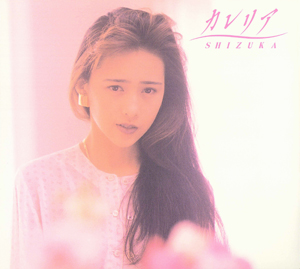
Karelia is the fourth studio album by Japanese singer Shizuka Kudo. It was released on October 4, 1989, through Pony Canyon. It is a concept album inspired by the music from Finnish Karelia. The album was entirely recorded in Finland and features the Helsinki Philharmonic Orchestra as well as a choir group from the University of Helsinki. Despite being composed and produced by Tsugutoshi Gotō, Karelia lacks any trace of the signature rock style of Gotō's other compositions. The record features lyrics penned by Taeko Onuki and also includes the first song written by Kudo herself, under the pseudonym Aeri. While in Finland, Kudo created oil paintings inspired by the people and landscapes, which were incorporated into the design of the album's packaging. Karelia was re-issued in APO-CD format on December 1, 1993.

Joy is the third studio album by Japanese singer Shizuka Kudo. It was released on March 15, 1989, through Pony Canyon. It is the first of three albums released by Kudo that year: it was followed by the concept album Karelia in October and the compilation album Harvest in December. A limited first pressing of Joy was released in gold CD format. Kudo has stated that Joy is one of her favorite albums she has recorded. Nanase Aikawa has also listed the album as a major influence behind her decision to pursue a musical career. Joy was re-issued in APO-CD format on December 1, 1993.

Shizuka is the second studio album by Japanese singer Shizuka Kudo. It was released on July 21, 1988, through Pony Canyon. The eponymous record is often cited as an EP, despite being officially regarded as her second album. Shizuka is entirely written and composed by Miyuki Nakajima and Tsugutoshi Gotō, respectively. Nakajima recorded a cover of the fifth track, "Hadashi no Lion", for her album Otogibanashi: Fairy Ring (2002). Shizuka was re-issued in gold CD on March 21, 1989, and later in APO-CD format on December 1, 1993.
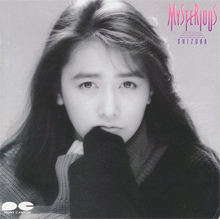
Mysterious is the debut studio album by Japanese singer Shizuka Kudo. It was released on January 21, 1988, through Pony Canyon. Mysterious was re-issued in gold CD on March 21, 1991, and later in APO-CD format on December 1, 1995.




















